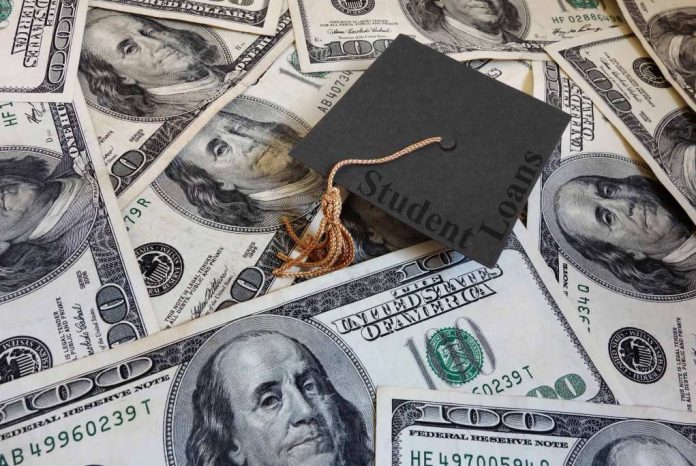
As people grow up, they need to deal with different challenges in life. One expense that they may need to deal with includes getting a higher education. While some families are lucky enough to handle the costs up front, other people aren’t so lucky. In fact, the average cost of college in America per student is $35,331 annually as of 2022. This number also includes supplies, books, and daily living expenses. That is why some people turn to student loans as a way to finance this big expense.
Understanding Student Loans
Student loans are a way that students can finance their education. A lender will provide funds to the borrower that can be used on educational expenses. There are a variety of different student loan options and lenders. Each option has its own set of pros and cons and can vary in the level of assistance that they can provide.
Different Kinds of Student Loans
Besides needing to decide on your lender, you will also need to decide on the type of loan that you want to get. There are different kinds of loans that students (or their families) can choose from. The two main types of loans are:
- Federal Student Loans
- Private Student Loans
Federal Student Loans
A popular option that students turn to are federal student loans. That’s because these loans tend to have financing options that can better support those trying to afford an education. The four main types of student federal loans are direct:
- Unsubsidized Loans
- Subsidized Loans
- PLUS Loans
- Consolidation Loans
Direct Unsubsidized Loans
Undergraduate and graduate students can benefit from this government loan opportunity. With this type of loan, students do not need to show financial need. The school of the student determines how much the student can borrow. The amount of funds depends on the student’s cost of attendance as well as other financial aid that the student receives. Students that receive this type of loan are responsible for paying the interest.
Direct Subsidized Loans
Undergraduate students can benefit from this loan opportunity. However, they must be able to show that they are in financial need. The school of the student determines how much the student can borrow. However, the amount they receive can’t be more than the level of their financial need. With these types of loans, it’s important to note that that United States Department of Education (DOE) will pay interest on these loans under the following conditions:
- While the student is in school at least half-time
- During the first six months after the student leaves school (this is known as a grace period)
- During a deferment period (this is a period when loan payments are postponed)
Direct PLUS Loans
This loan option can be for either students or for qualifying parents. However, students can only be either professional students or graduate students that attend schools who participate in the Direct Loan Program. However, unlike other loan options in this list, a credit check will be a part of the application process! The most amount of funds that this loan can provide is the student’s cost of attendance minus any other financial aid that the student receives.
Direct Consolidation Loans
If you have multiple federal student loans then you may benefit from a direct consolidation loan. That’s because this federal student loan option allows students to combine their loans into one! This can make it easier for students to manage their payments since multiple monthly payments turn into one payment after consolidating the loans!
Private Student Loans
Besides federal student loans, students (and parents) can also consider private student loans. Instead of DOE being your lender like with a federal student loan, your lender would be a private lender like a bank, credit union, or other financial institution. In fact, some people even turn to online lenders!
Refinancing Student Loans
A student loan refinance is when a student replaces their existing student loan with a new one. The new student loan could have a lower interest rate which can result in savings in the long-run. However, not everyone can benefit from a student loan refinance. Refinancing can mean losing out on support like loan forgiveness and student loan relief for those with federal student loans. Generally, you should consider a student loan refinance if you:
- Are financially stable
- Have the chance to save money
- Meet the eligibility qualifications
What are Popular Student Loan Lenders?
When it comes to student loans that are private, you have a lot of lending options to choose from. It can be daunting when you are looking for lenders to help you with your education financing. Luckily, when reviewing your options you can check out popular lenders that other students liked! This can help you begin your journey in finding the right lender for you if you are getting a private student loan. Some of the best lenders for student loans that are private include:
- A.M. Money
- Ascent
- Citizens Bank
- College Ave
- Discover
- Funding U
- PNC Bank
- SoFi
When reviewing your lenders, you will want to make sure you compare your options. This allows you to make sure that you are getting the best deal possible when it comes to your financing.
Why is Your Credit Score Important?
Many people think they have an in-depth understanding of their credit score but that may not be the case. Your score is a number that typically falls between 300 and 850. This score is calculated by credit bureaus. Lenders use this score as a way to determine the creditworthiness of a potential borrower. Creditworthiness refers to the risk that lenders face when lending money to a borrower.
When calculating your score, credit bureaus will use information found on your credit report. Your credit report contains information about your credit file. Your credit file contains information about your credit accounts, payments, and more. There are three major credit bureaus which are Experian, Equifax, and Transunion. Credit bureaus use scoring models in order to understand how each item on your credit report will impact your score. The scoring model varies depending on the credit bureau.
There are two main scoring models. There is the VantageScore model and the FICO scoring model. However, the FICO scoring model is the more popular of the two because it is used by 90% of top lenders!
What Factors Have an Effect on Your Score?
Due to the fact that the more popular scoring model is the FICO model, that is what we will be using for reference in how these factors can impact your score. There are 5 main factors that can impact your score. These factors include:
- Payment History
- Credit Utilization
- Age of Credit History
- Credit Variety
- Hard Pulls
Payment History
At the very top of the list when it comes to factors that can affect your credit score is your payment history. This factor accounts for 35% of your score. Your payment history would include your on-time payments, late payments, collection accounts, etc. This is one of the top factors because it can easily show lenders how you deal with repaying back what you borrow!
Credit Utilization
Your credit utilization is also known as your credit usage. This is a ratio that looks at the credit you are currently using compared to your overall credit limit. Let’s look at an example so we can better understand what a credit utilization ratio would look like! For example, if you have an overall credit limit between 3 credit cards totaling $5,000 but are currently using $3,200 between those three cards then your credit utilization ratio would be 64%. This is the second most important factor when it comes to your credit score because it accounts for 30% of it.
Age of Credit History
Another factor to be mindful of is the age of your credit history. This factor accounts for 15% of your score. Your age of credit history would include information like the age of your oldest account, the age of your newest account, etc. While it may not be at the top of the list, it is still something to be aware of!
Credit Variety
Many people don’t realize that there is more than one type of credit account. Instead, there are two main types of credit accounts! There are installment loans and revolving credit. Installment loans would be loans like student loans, mortgages, car loans, etc. On the other hand, an example of revolving credit would include a credit card. This factor accounts for 10% of your score but should still be something you keep in consideration.
Hard Pulls
Hard pulls are also known as hard inquiries. When it comes to your credit, there are two types of inquiries. There are either hard inquiries or soft inquiries. While soft inquiries cannot impact your credit score, hard inquiries can. That’s because hard inquiries are what lenders need in order to get a deeper look at your credit file. This helps them determine your eligibility and accounts for 10% of your score.
What Kind of Score Do You Have?
Remember how we said there are two main scoring models? Well, each scoring model has its own set of ranges and categories. For example, with the FICO score model credit scores that are:
- 300 to 579 are Poor
- 580 to 669 are Fair
- 670 to 739 are Good
- 740 to 799 are Very Good
- 800+ are Exceptional
On the other hand, the VantageScore model is different. That’s because according to this scoring model, credit scores that are:
- 300 to 499 are Very Poor
- 500 to 600 are Poor
- 601 to 660 are Fair
- 661 to 780 are Good
- 781+ are Excellent
It’s also important to keep in mind that each type of credit score also has different versions. For example, as of September, 2021 there are at least 16 different versions (or models) of the FICO score.
Understanding Student Loans and Your Credit Score
Now that you have a better understanding of both student loans and your credit score, it is time to learn about how they impact each other.
Do Student Loans Affect Your Credit Score?
Yes, student loans affect your credit score! Many people don’t realize just how much their student loans affect their credit score. But your credit score can be impacted by your student loans in a number of ways. Remember the factors that we said can impact your score like payment history, credit variety, etc.? Well these factors are the reason that student loans will impact your credit.
How Can Student Loans Affect Your Credit Score
Your student loans affect your credit score in a number of ways. In fact, some ways your student loans can impact your score includes:
- Payment History
- Credit Variety
- Hard Pulls
Payment History
Number one the list of factors that impact your credit score is your payment history. This is how you repay the debts that you owe. When you get a student loan, there will be an agreement between you and the lender that details when you have to submit your minimum monthly payment. If you are late on these payments you can negatively impact your score. On the other hand, if you are on time with these payments then you can build up a good history of credit payments which can boost your score!
Credit Variety
Towards the end of the list of factors that impact your credit score is your credit variety. However, if you only have credit accounts that are revolving credit, then adding installment loans like a student loan could help diversify your credit file! This may be able to improve your score.
Hard Pulls
Hard pulls (also known as hard inquiries) are what provide the lender the ability to get an in-depth look at your credit file. If your student loan requires a credit check in order to qualify then that hard inquiry can negatively impact your score!
Commonly Asked Questions
Learning about student loans can be tricky, especially when it comes to dealing with your credit score. That is why many other people have had questions along the way when learning about this topic. You may have questions after reading this article that they had as well!
Can Student Loans Affect Your Credit Score?
Yes they can! That’s because your student loan debt is something that you need to repay. However, if you do not properly handle your monthly payments then your score can decrease. You may also see a change to your score since student loans are a type of installment loan which can add to your variety of credit accounts. Another way you could see a change is if there is any hard inquiry a lender submits in order to access your credit file.
Will Student Loans Show Up on Your Credit Report?
Yes! Student loans will show up on your credit report. That’s because your credit report contains information about your credit file. This includes information like debts, payment history, and more. When you have a student loan, it’s something that needs to be repaid. That is why you will be able to see your student loan debt, your payment history, and more when it comes to your credit report.
How Much Do Student Loan Payments Cost on Average?
On average, a student can expect student loan payments to be $460 a month. This number comes from previously recorded student loan payments as well as the average median salaries for college graduates. Also on average, borrowers need 20 years to finish paying off their student loan debt.
What are Credit Score Student Loans?
Student loans that require a credit check are ones from private lenders as well as Direct PLUS federal loans. However, it is important to know that not every student loan option will need a credit check. For example, direct subsidized loans and direct unsubsidized loans do not require a credit check. That means your score will not be a part of the eligibility requirements!
Are Student Loans Worth It?
The answer to this depends on your situation. For example, if you spend over $100,000 on student loans to get an education but do not use your degree and do not work in a field that’s your degree specialty then it may not be worth it.
However, it will likely be worth it. That’s because student loans are the money that lenders loan the borrower in order to handle the cost of getting a higher education. Getting a higher education comes with a variety of benefits. Some of the benefits can include:
- Higher Salaries
- Better Employment Rates
- Career Preparation
- Career Specialization
- Higher Levels of Productivity
- Higher Levels of Self Confidence
- Better Social Skills
- Better Critical Thinking Skills
- Environmental Awareness
- Reduced Levels of Crime
- Empowerment
- Poverty Reduction
Bottom Line
As people grow up, they need to deal with different challenges in life. One expense that they may need to deal with includes getting a higher education. Getting a higher education can be beneficial but also pricey. In fact, the average cost of college in America per student is $35,331 annually as of 2022. That is where student loans come in. Student loans are funds provided by the lender to a borrower that can go towards the cost of a higher education. There are a variety of different student loan options and lenders. Each option has its own set of pros and cons and can vary in the level of assistance that they provide. The two main types of loans are:
- Federal Student Loans
- Private Student Loans
Something important to keep in mind about student loans is that they can impact your credit score. Your credit score is a number that typically falls between 300 and 850. This score is calculated by credit bureaus. Lenders use this score as a way to determine the creditworthiness of a potential borrower. Creditworthiness refers to the credit risk that lenders face when lending money to a borrower.
Student loans can impact your credit in a number of different ways. That’s because under the 5 main factors that affect your credit score, your student loan debt can account for three different factors:
- Payment History
- Credit Variety
- Hard Pulls
If you have any questions on your student loan options or your credit score then you will want to get in touch with a professional. You can speak to your school’s financial aid office or with a professional at a private lender (like a personal banker). Even though student loans can be scary to deal with, they don’t have to be and can provide a lot of support!
Article References
https://educationdata.org/average-cost-of-college
https://studentaid.gov/understand-aid/types/loans
https://studentaid.gov/understand-aid/types/loans/subsidized-unsubsidized
https://studentaid.gov/understand-aid/types/loans/plus
https://studentaid.gov/app/launchConsolidation.action
https://www.nerdwallet.com/article/loans/student-loans/student-loan-refinance-calculator
https://www.forbes.com/advisor/student-loans/best-private-student-loans/
https://www.cnbc.com/select/where-to-get-a-free-fico-score/
https://www.experian.com/blogs/ask-experian/fico-score-versions/
https://educationdata.org/average-student-loan-payment
https://research.collegeboard.org/media/pdf/education-pays-2004-full-report.pdf
















